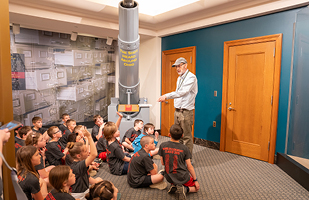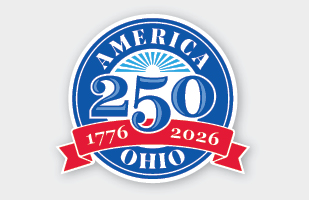Protections for Human Cannonball’s Right of Publicity

On this day in 1977, the United States Supreme Court ruled in favor of “Human Cannonball” Hugo Zacchini in a case concerning rights of publicity and the First Amendment. This case is featured in the Moyer Judicial Center’s Visitor Education Center, which is open to the public for free tours.

On this day in 1977, the United States Supreme Court ruled in favor of “Human Cannonball” Hugo Zacchini in a case concerning rights of publicity and the First Amendment. This case is featured in the Moyer Judicial Center’s Visitor Education Center, which is open to the public for free tours.
In Aug. 1972, Hugo Zacchini was preparing to shoot himself out of an air-compressed cannon for his act at the Geauga County Fair in Burton, Ohio. A reporter for a local TV station, Scripps-Howard Broadcasting, was in attendance. Zacchini explicitly requested the reporter not film the stunt. The reporter ignored Zacchini’s request and later broadcast the entire act on the evening news. Zacchini sued for damages, accusing Scripps-Howard of unlawfully assuming his professional property.
In this case, courts had to weigh Zacchini and Scripps-Howard's competing interests. Zacchini wanted to economically and publicly benefit from his own work, in this case his performance at the Geauga County Fair. Scripps-Howard, as a broadcasting company, profits from reporting on public events such as Zacchini’s performance. Scripps-Howard attempted to defend this interest, claiming that public interest in an event ensures that news companies are, in general, constitutionally able to report on it. This privilege would come from the First Amendment, which provides for freedom of the press.


The Supreme Court of Ohio was sympathetic to Scripps-Howard’s arguments, finding that news stations were constitutionally privileged in reporting matters of public interest. However, the Supreme Court of the United States disagreed. The Court likened Zacchini’s performance to a patent or copyright, in which broadcasting the event without permission threatened the actor’s ability to economically benefit from his own performance. On June 28th, 1977, the Court decided that the Constitution does not grant Scripps-Howard immunity from infringements of an entertainer’s right of publicity. Zacchini’s case was settled out of court for $10,000.
This case is one of several featured in the Visitor Education Center at the Thomas J. Moyer Ohio Judicial Center. As part of the Court’s America 250 celebration, we are highlighting historic cases from Ohio’s long and storied history, illustrating the importance of our judicial system and its role in interpreting the law.
See these cases for yourself on a free tour! Email CourtTours@sc.ohio.gov to schedule.


